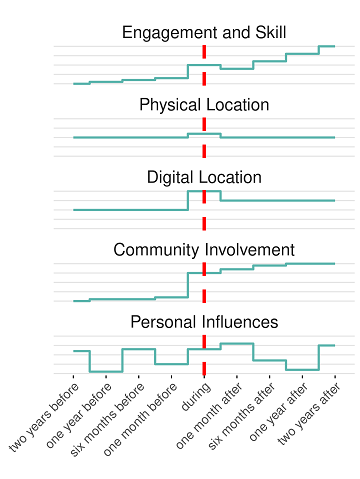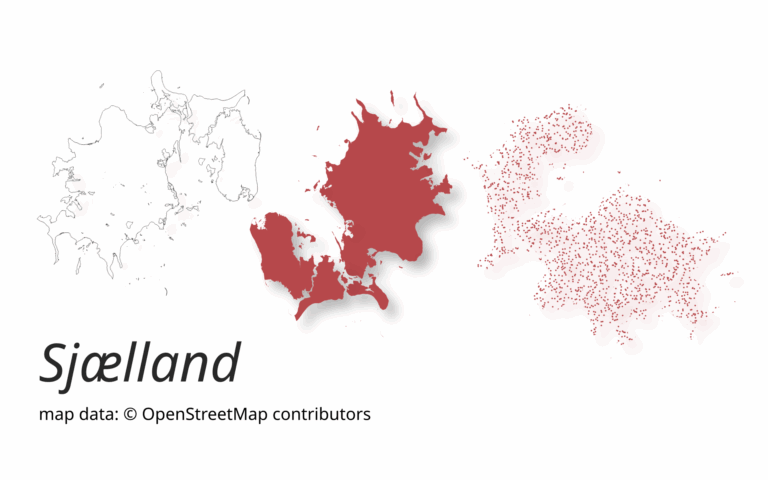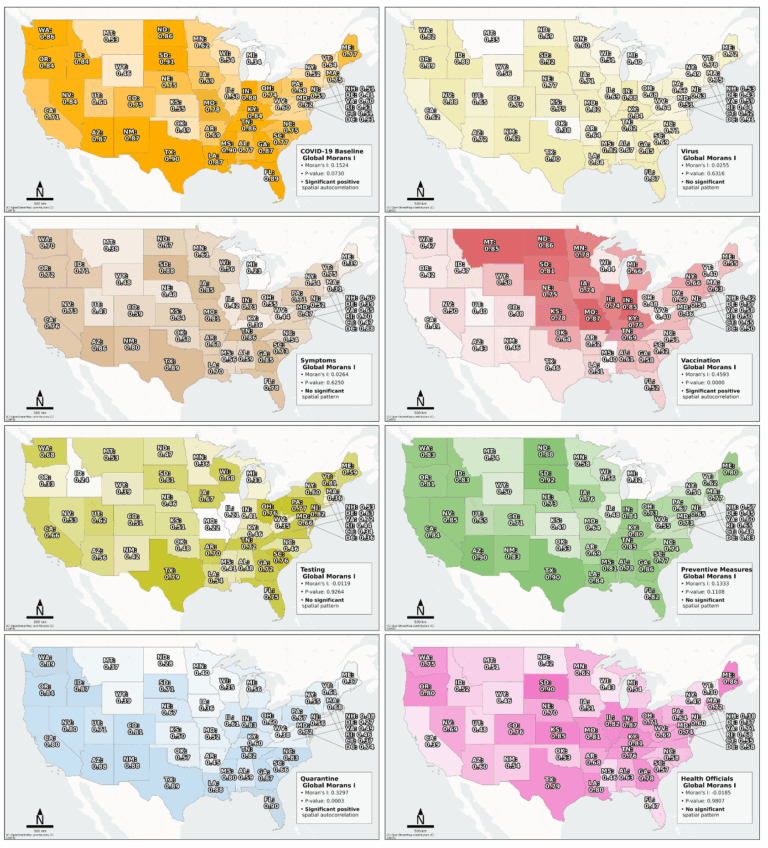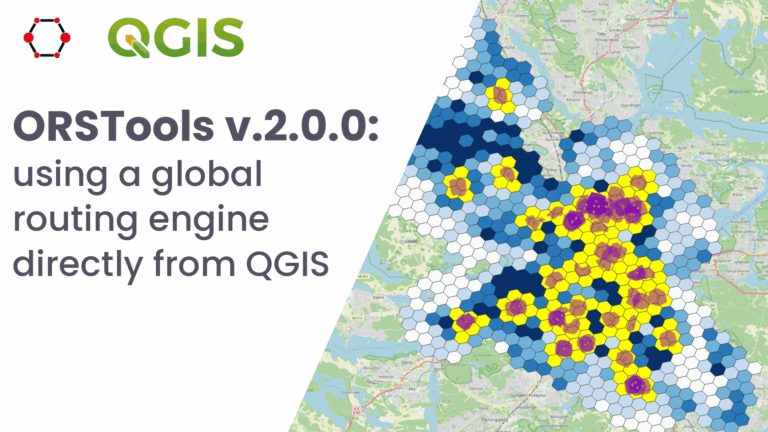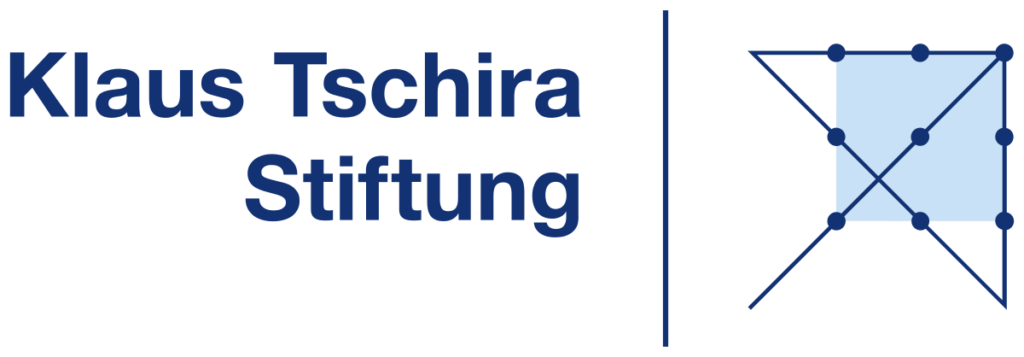Online knowledge projects such as OpenStreetMap (OSM) and Wikipedia have gained high importance, trust and even economic value. These projects and their content are maintained and enhanced by online communities that evolve around them. Yet, these communities and their members are often ignored when the respective data or knowledge is used.
In a recent publication a systematic framework is established, to enable a comparable analyses of members of online communities. The framework is tailored towards Volunteered Geographic Information (VGI) but can be easily adapted to any online community that allows and enables the analyses of contributions made by single members.
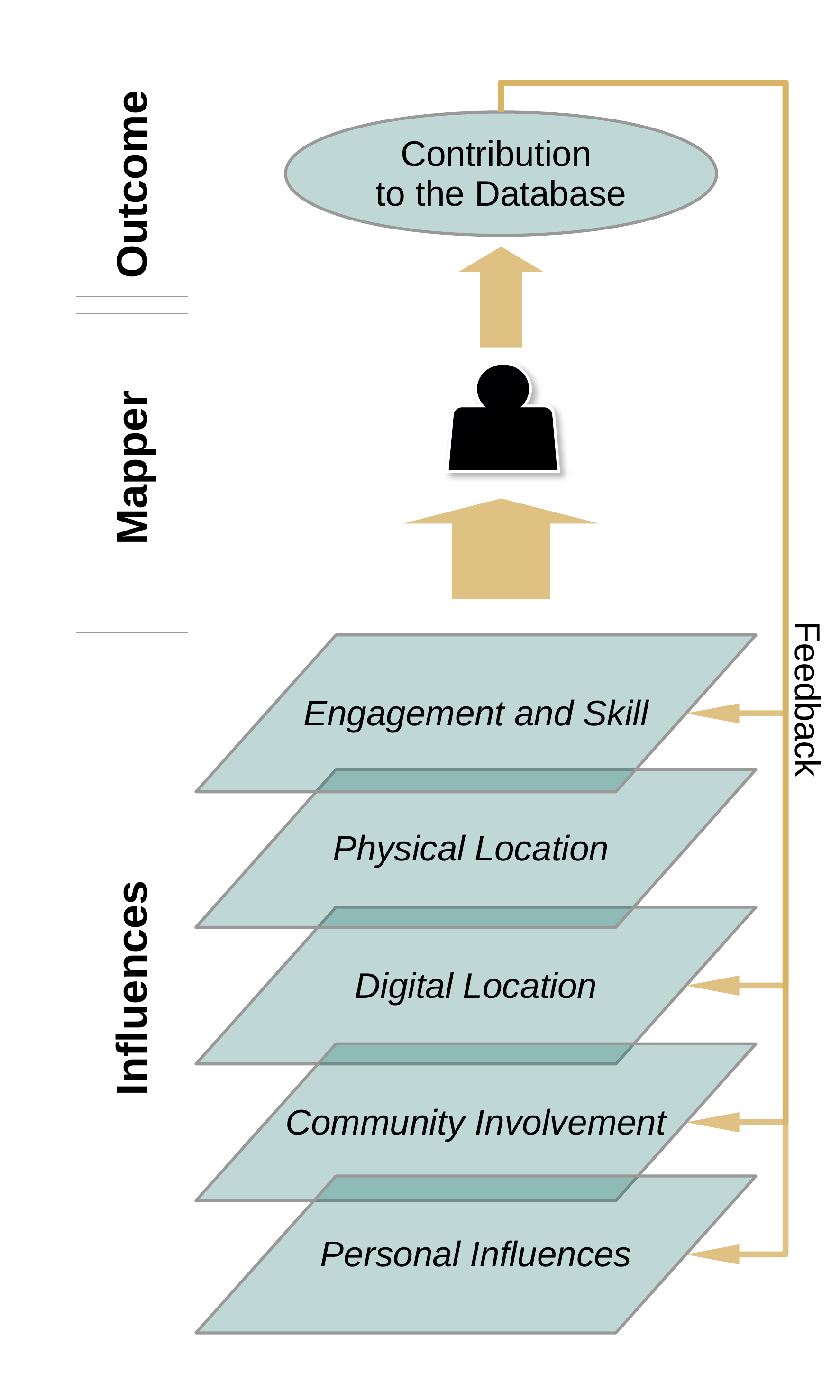
Influences or context a mapper is exposed to while making a contribution i.e. characteristics of a contribution.
The framework identifies a set of dimensions of contextual effect that influence the shape of a contribution to the project. The framework is tested on a specific use-case in OSM: Community Happenings. These happenings, so called mapathons, play a large role in OSM to foster the exchange between mappers but also to tackle a current need for OSM data such as in the aftermath of a humanitarian crisis. To analyse how mapathons change the way mappers contribute to the OSM project, each dimension of the framework was implemented into a set of measurable data proxies. The configuration of these proxies was then computed and compared before and after mapathons.
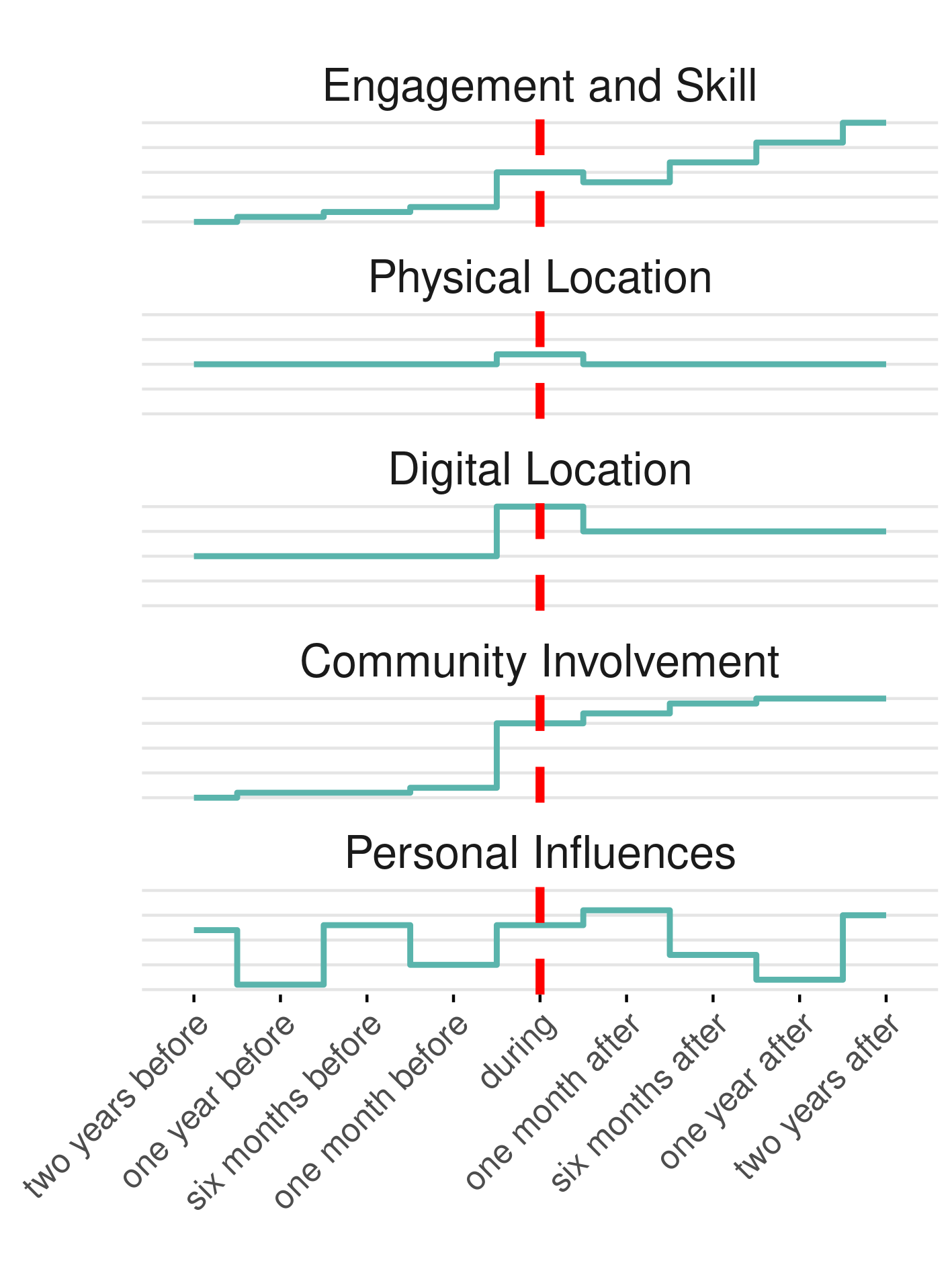
A hypothetical trajectory of mapping behaviour of a model mapper taking part in a happening along the five abstract dimensions of contextual effects.
This allowed for a precise description of where, when and how strong mapathons affect their participants and which groups are affected. Happenings that targeted remote regions were compared to happenings that targeted the immediate surrounding of the events venue. In addition newcomers were analysed separately from advanced mappers. All groups were compared to a control group.
Results showed that newcomers adopted a contribution behaviour similar to the contribution behaviour typical for the respective happening they attended: when contributing after the happening, newcomers who attended a remote mapping event tended to concentrate on creating new data with lower quality but high quantity in places foreign to their home region; newcomers who attended a field mapping event
updated and enhanced existing local data with high accuracy. The behaviour of advanced mappers
stayed largely unaffected by happenings. Unfortunately, our results did not reveal a positive effect
on the community integration of newcomers through happenings.
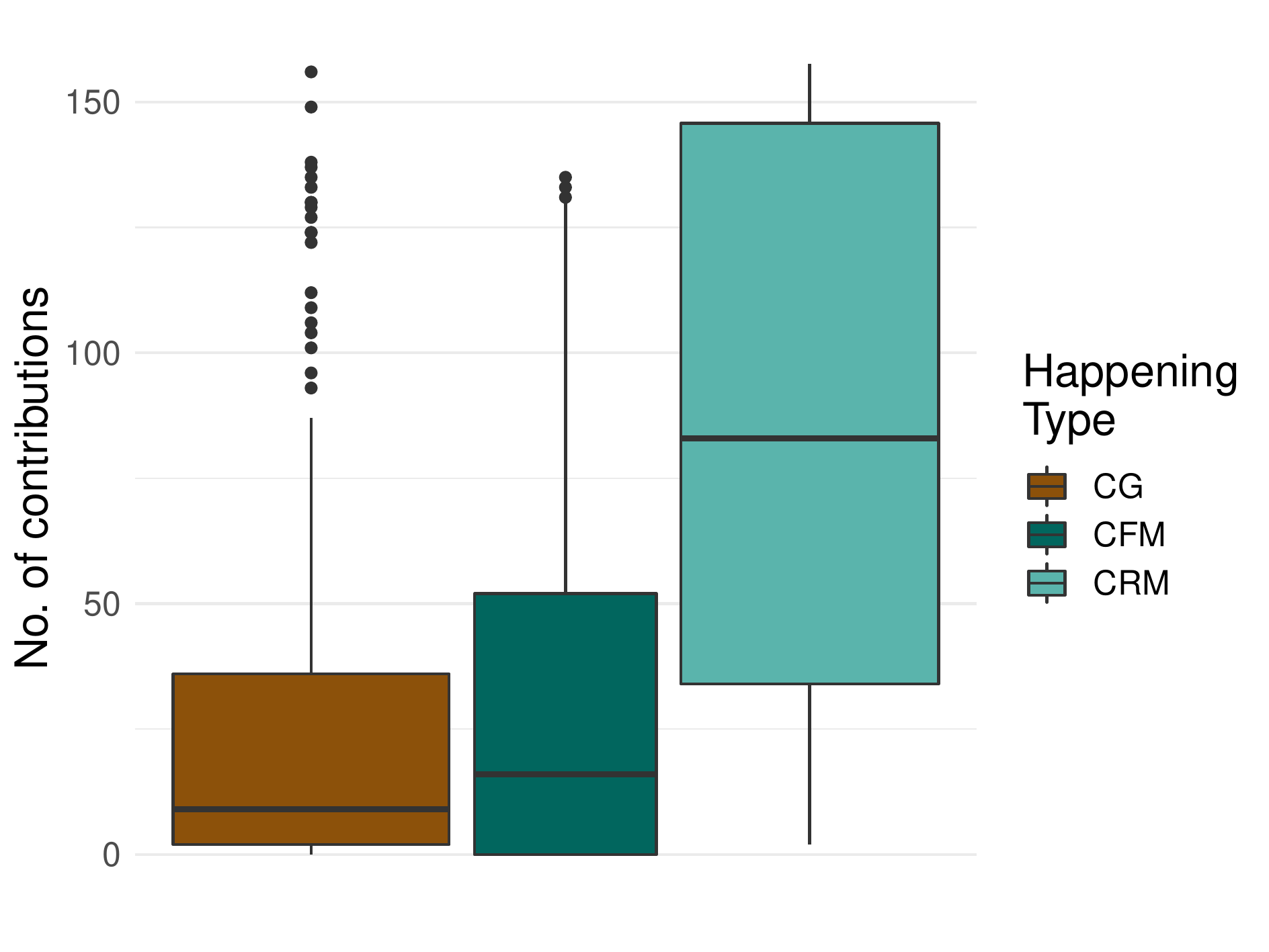
Quantity of contributions for happening participants during events. CFM – Field mapping event; CRM – Remote mapping event; CG – Control group
Schott, M.; Grinberger, A. Y.; Lautenbach, S. & Zipf, A. (2021) The Impact of Community Happenings in OpenStreetMap – Establishing a Framework for Online Community Member Activity Analyses In: ISPRS Int. J. Geo-Inf. 10, no. 3: 164. https://doi.org/10.3390/ijgi10030164
Related work:
Herfort, B.; Lautenbach, S.; de Albuquerque, J.P.; Anderson, J.; Zipf, A. The evolution of humanitarian mapping within the OpenStreetMap community. Sci. Rep. 2021, 11. [CrossRef]
Raifer, M.; Troilo, R.; Kowatsch, F.; Auer, M.; Loos, L.; Marx, S.; Przybill, K.; Fendrich, S.; Mocnik, F.B.; Zipf, A. OSHDB: A framework for spatio-temporal analysis of OpenStreetMap history data. Open Geospat. Data Softw. Stand. 2019, 4, 3. [CrossRef]
Eckle, M.; de Albuquerque, J.P. Quality Assessment of Remote Mapping in OpenStreetMap for Disaster Management Purposes. In Proceedings of the ISCRAM 2015 Conference, Krystiansand, Norway, 24–27 May 2015.

